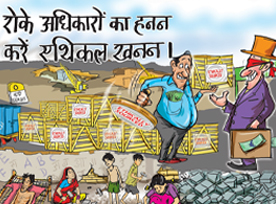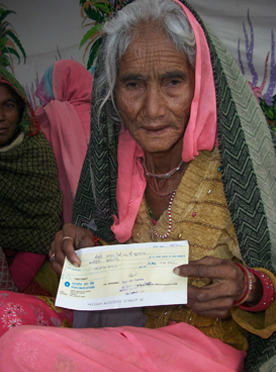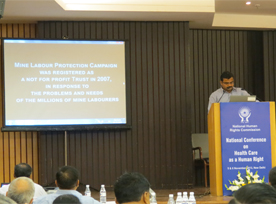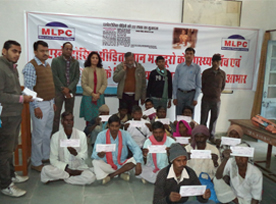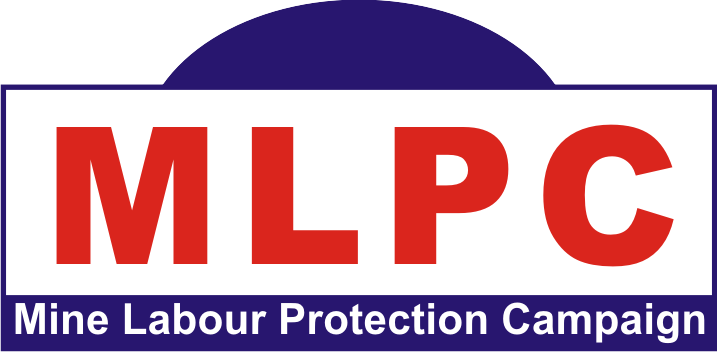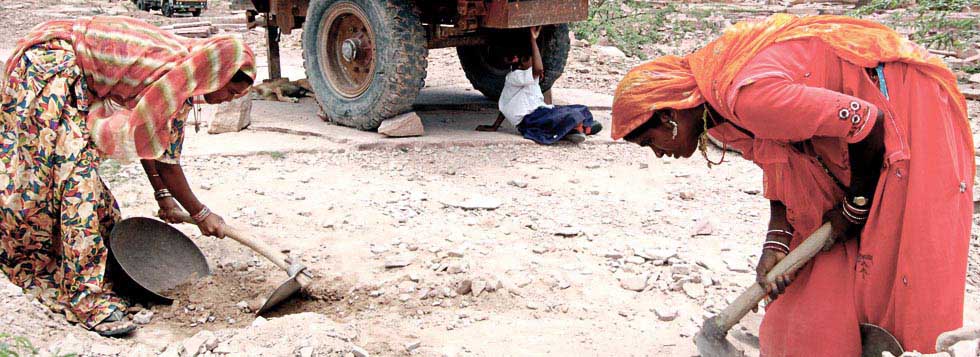
Policy and Advocacy
Policy and Advocacy:
To bring in any sustainable long term change, it is essential to bring in change at the government policy level. The community of mine workers have been mobilized and trained to take up advocacy work. Today they organize community meetings and strategize on issues and engage with government officials on topics ranging from occupational health and safety, environmentally sustainable mining, women, and child labour. Various tools like Right to Information act (RTI), Public Interest Litigation (PIL) and other constitutional provisions are used to achieve the desired impact. Our focus is to change in policies and enforce law - since in India many are codified, but few are implemented. At the international level, we are members of OECD Watch and are working on Ethical Stone issue to ensure that there is no violation of human rights in the extraction, processing and export of stones.
ACHIEVEMENTS (we have listed a few only)
While we cannot close down a profession that has been continuing for the last 500 years, we are trying to promote responsible Mining so that it is environmentally sustainable and respects human rights. An instance of our involvement is the Marble Mining at Makrana. Marble for Taj Mahal came from Makrana mines in Rajasthan. Death and Injury was a daily occurrence in those mines. We decided to make a documentary “Shadow of Taj” and while filming realized how dangerous the mines were and that mine workers courting death every day. On investigating, we saw the lacunae of the various government departments and the violation of every rule in the rulebook. To make the State and central governments responsible, we decided to file a Public Interest Litigation case. Because of this judicial intervention and media publicity through the documentary, a grievance handling cell was set up and where, for the first time different departments related to mining meets every month. Even today this continues and it has helped to reduce the number of accidents and irregularities in the Marble mines.
We have been working on Occupational Health ever since we lost one of our community members to asbestosis. It was then we realized that most mine workers have no identity proof and employment proof since they are part of the large unorganized or informal sector. Hence, impoverished and suffering, they are outside the gambit of law and ineligible for any benefits or compensation. The mine workers court death everyday and even with daily occurrence of death, the mine owners nor does the government show any remorse. After carefully researching the situation we decided to file a case with National Human Rights Commission (NHRC) for those who had died of silicosis, an occupational disease. Since the recourse to law is futile without evidence, we had to file a case on humanitarian grounds. NHRC recommended the state to pay a compensation of INR 3 lakhs each, to the next of kin of silicosis victims. We further advocated with the State government and today Rajasthan is the only state that provides monetary relief of INR 1 lakh to victims of occupational diseases besides monetary relief (INR 3 lakh each) to the next of kin of those who died.
We were also instrumental in reviving the Pneumoconiosis Board under the Rajasthan Silicosis Rules and advocated for extending them across the state. Today, there are Pneumoconiosis Boards constituted in the Medical Colleges giving accessibility to mineworkers from across the state to diagnose themselves for occupational diseases. The Boards are in Ajmer, Bikaner, Kota, Jaipur, Udaipur and Jodhpur.
We have been advocating for preferential right to the widows of mine workers in the allocation of mining leases/quarry licenses. 48% of the women workforces in mining are widows of mine workers. 57% of these widows are dalits. On 5th March, 2013, the government of Rajasthan in a landmark step has amended the Rajasthan Minor Mineral Concession Rules 1986 to include widows of mineworkers and disabled persons, providing a total of 15% preferential rights for Mining leases and 35% preferential rights in Quarry licenses. This avenue will free them from debt bondage and enable them to lead a dignified life. Approximately 2,50,000 dalit widow mine workers will directly benefit from this provision.
